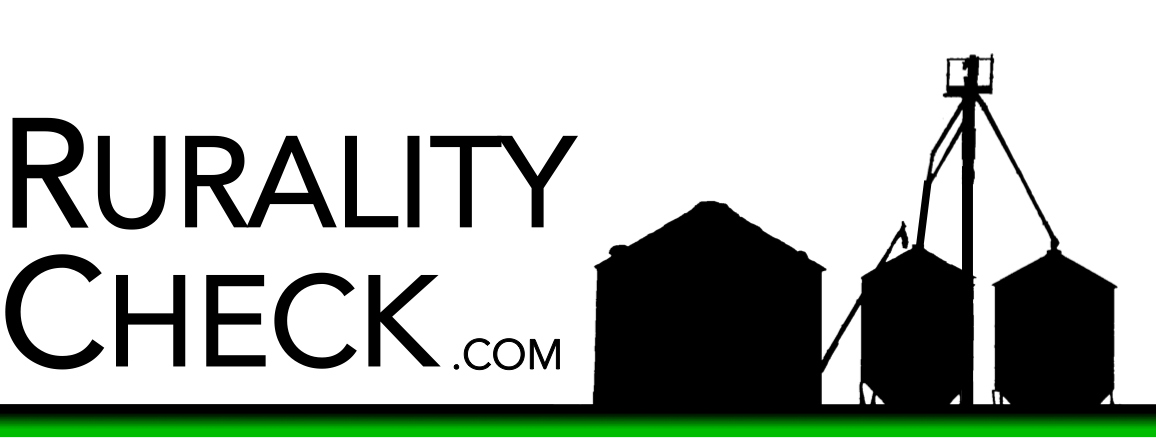
This is a new, shorter format: the Kernel (hence the picture). Feedback is welcome, especially on our editor’s Twitter account (@RuralityChecker). As always, thanks for reading.
A local car salesman recently offered up this tidbit in casual conversation: “High school is about learning how to think.”
Odd—when I was a professor, that’s what we said about college.
Two quick points in this little Kernel:
First, consider how our culture talks about higher education. How it enhances critical thinking. How it teaches skills like writing. How it gives students a toolbox for success in the “real world.”
Now, replace “college” with “high school.” Still works, right?
A little too well, I think.
I’ve think we’ve heard all this before. You know, at our high-school commencement addresses.
Does that bother you? It bothers me.
We’ve started to use the universal language of education—talk of basic skills and critical thinking—at the college level. One immediately sees why. We steadily increase the number of remedial classes for incoming freshmen, all in the name of “access.” We steadily increase the number and scope of supplementary learning services on campus, too. This, friends, is an academic downhill slide.
And there’s no fun jump at the end.
Read the science standards for public K-12 education in your state, and you’ll see a lot of the same words, maybe verbatim, on a syllabus of a typical science course for general education credit at a typical college. I recently read the science standards about evolution education in Minnesota. A lot of it sounded like discussions my colleagues and I had about our freshman biology course for non-majors.
Seriously, some of that familiar language came from standards for students in elementary school.
Reams of data suggest we’re educating our students more and more poorly in our compulsory secondary education. If our education system isn’t working, maybe we should fix high school before we start encouraging more college. One needn’t be a hardline skeptic to raise an eyebrow at the suggestion of more education for everyone, especially when it’s funded by the state.
Second, the watering down of our standards for academics correlates to our decaying standards for student behavior. I’m not even talking about the safe spaces, and the trigger warnings, or more important things, like the decreases in study time among students. I’m talking about things like parental involvement in academics at the college level: as a former director of advising at a small college, I can tell you that many parents think that their little babies are just continuing their educations, as if we tacked on four years to make it K-16.
Speaking of babies, I’m talking about the colleges that now run daycare facilities.
(Why is tuition going up?)
Also, I’m talking about accountability generally. It used to be that you could drop out of high school—nowadays, you can barely drop out of college. Trust me on this, especially at small institutions: when a student even just might drop out, the tuition arms race half-forces colleges to bend over backwards to keep her. This creates bizarre levels of student-centeredness, where the college is working to keep the student enrolled, regardless if that’s good for the student. As a result, the student feels bulletproof, and the faculty notice: the student is far less than motivated to achieve in the classroom. Why would she be?
If this feels far-afield, it’s not: it’s germane because this is exactly how students feel in K-12. It’s the same pattern of behavior. Schooling isn’t something that is a privilege—it’s a right. No matter what, seemingly. And the student (and the parents) are entitled to it.
Even in college.
If you don’t believe me, listen to our politicians, especially on the Left, talk about college. As Charles Cooke pointed out recently in National Review, you’d think our nation’s biggest problem is that not enough people go, or can go, to college. That it’s the government’s job to ensure that they all can go to college. That a life without college is barely a life at all!
Again, substitute “college” with “high school.”
We’re talking about all of these students, in high school and in college, as if they’re children. As if they can’t decide for themselves what’s best, or as if they can’t be allowed to fail.
K-16, indeed.
Until a high-school diploma is worth more than the fancy papyrus it’s printed on, I don’t think college is the answer. Certainly, I don’t think public-funded college is the answer. After all, we have too many kids going to college now, when it’s costly. Let’s not throw good money after bad.
And let’s stop treating adults like children. They should know how to think for themselves.
That’s why they went to high school, right?

P. A. Jensen is editor of RuralityCheck.com.
He lives in northern Minnesota with his wife and son.

